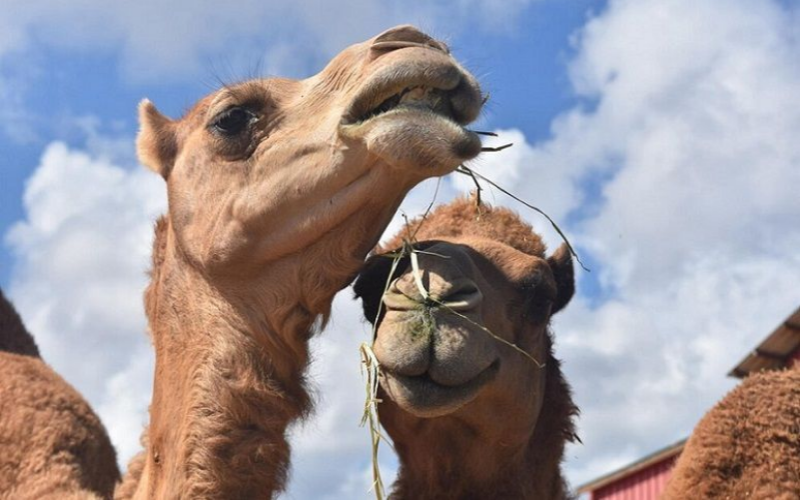India Pioneers the Camel Milk Revolution for Medicinal Use
Sourse: in.edairynews.com
Gujarat and Rajasthan join forces in a groundbreaking initiative to collect camel milk for medicinal purposes, aiming to enhance breeder incomes and capitalize on the milk's unique properties.

In a fascinating advancement within the Indian dairy sector, states Gujarat and Rajasthan are spearheading a collaborative effort to harness the medicinal properties of camel milk. This initiative follows discussions led by Union Home and Cooperation Minister Amit Shah with cooperative workers from Gujarat, Madhya Pradesh, and Rajasthan, highlighting the potential of camel milk.
This marks a significant diversification of "dairy economics," moving beyond traditional bovine milk. The growing interest was sparked by a proposal from Miralben Rabari of the Camel Breeder Maldhari Cooperative Society in Kutch, prompting calls for comprehensive chemical analyses. In response, four Ayurvedic companies are conducting research, with one having completed its study, showcasing the scientific and commercial intrigue surrounding this niche dairy commodity. The strategic plan involves setting up a national network to collect camel milk, capitalizing on its Ayurvedic medicinal value.
This societal push is expected to fetch significantly higher revenues for camel milk producers, uplifting camel breeders' livelihoods. Such developments reflect a broader trend of shifting agribusiness focus towards specialized, value-added products. By tapping into the global demand for natural remedies and functional foods, India positions itself uniquely in the market.
The government-backed initiative aims to revolutionize the economic feasibility of camel husbandry, potentially enhancing rural incomes significantly. The international dairy community can glean valuable insights from this initiative, which illustrates how targeted research and collaborative frameworks can open new economic pathways in the global dairy sector.
This marks a significant diversification of "dairy economics," moving beyond traditional bovine milk. The growing interest was sparked by a proposal from Miralben Rabari of the Camel Breeder Maldhari Cooperative Society in Kutch, prompting calls for comprehensive chemical analyses. In response, four Ayurvedic companies are conducting research, with one having completed its study, showcasing the scientific and commercial intrigue surrounding this niche dairy commodity. The strategic plan involves setting up a national network to collect camel milk, capitalizing on its Ayurvedic medicinal value.
This societal push is expected to fetch significantly higher revenues for camel milk producers, uplifting camel breeders' livelihoods. Such developments reflect a broader trend of shifting agribusiness focus towards specialized, value-added products. By tapping into the global demand for natural remedies and functional foods, India positions itself uniquely in the market.
The government-backed initiative aims to revolutionize the economic feasibility of camel husbandry, potentially enhancing rural incomes significantly. The international dairy community can glean valuable insights from this initiative, which illustrates how targeted research and collaborative frameworks can open new economic pathways in the global dairy sector.
Key News of the Week











